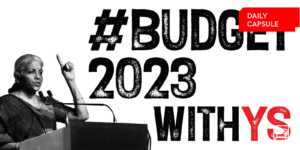
Business-to-business (B2B) marketplaces will drive the next phase of growth for India’s digital economy, said a report by venture capital firm .
Online-first, tech-enabled B2B marketplaces are expected to present a $200 billion market opportunity by 2030, as compared to the $20 billion opportunity in 2022.
Despite the promised growth, online B2B Gross Merchandise Value (GMV) will only account for 5% of the overall B2B sales in India by 2030, as compared to the current market share of 1%, the report said.
This is significantly less opposed to other geographies, where B2B ecommerce commands a significant share of overall sales. According to the report titled The Emergence of B2B Marketplaces in India, the share of online B2B sales in China stood at 25%, followed by 20% in the UK, and 18% in the US markets.
The report identifies three key opportunities in the B2B marketplace space, including product, services, and infrastructure marketplaces.
“The services sector is less talked about and continues to grow in India. Services marketplaces command higher gross margins at an average of 30% to 40%, compared to product marketplaces, which command an average of 15% gross margin,” Anant Vidur Puri, Partner at Bessemer Venture Partners, told YourStory.
He added that the success of services marketplaces offering workforce, marketing, ad, freelance, HR, travel and other services will be determined by how well these marketplaces can build a whole business on collaboration suite on both sides. It will also determine the retention, margins and, in turn, revenue for these firms, Puri added.
The report indicates that accessibility of online payments and availability of government-backed ecommerce such as ONDC and rails for credit through OCEN will plan into the growth of online B2B transactions.
.thumbnailWrapper
width:6.62rem !important;
.alsoReadTitleImage
min-width: 81px !important;
min-height: 81px !important;
.alsoReadMainTitleText
font-size: 14px !important;
line-height: 20px !important;
.alsoReadHeadText
font-size: 24px !important;
line-height: 20px !important;

It also highlights key hypotheses determining the performance of B2B marketplaces in India, including a vertical approach to building deeper supply lines, addressing fragmented markets, and implementing software solutions to eliminate inefficiencies to rise above the role of a distributor. Other factors needed for success include building a full-stack, transactional model, and offering working capital to buyers.
“Working capital is a key proposition for both buyers and sellers on a B2B marketplace, although the cost of lending cannot be ignored,” said Puri, adding that the return on capital deployed is a key metric for the marketplaces.
“Enablers for payments, working capital needs, logistics, and others is an interesting opportunity,” he added.
The key drivers for B2B marketplace growth in India are online penetration, developed digital infrastructure, amenable regulatory policies, and a conducive cross-border environment, the report highlighted.
As of 2022, two out of three MSMEs in India have adopted tech in some form, while nearly 15 million of the overall 60 million MSMEs are expected to transact on online marketplaces over the next four years, it said.
Edited by Suman Singh










